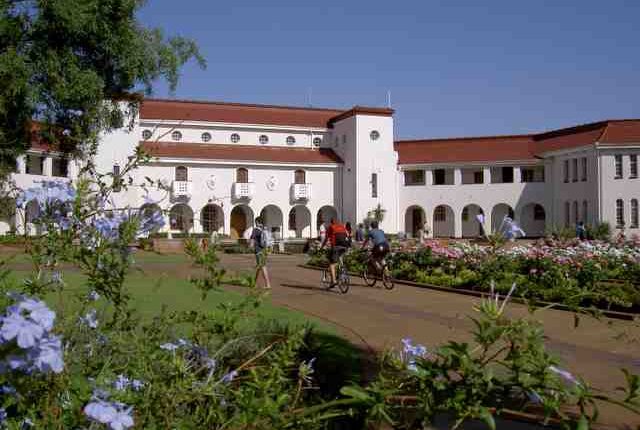North-West University: Public Lecture Explores Public Leadership and Governance in South Africa
The South African Association of Public Administration and Management (SAAPAM) hosted a public lecture on public leadership and governance in contemporary South Africa on 14 September 2023.
This public lecture was also a commemoration of the late Prof Barry Rhulani Hanyane, a lecturer and well-known political analyst at the NWU’s School of Government Studies. He passed away on 11 May 2022.
The lecture was themed “Public leadership and governance at 30: Where did we go wrong – and – how do we correct?”, and Dr FM Lucky Mathebula lead the discussion, accompanied by experts in governance and leadership, Prof Busani Ngcaweni and Prof Kedibone Phago.
More than 60 participants from academia and the practicing world of administration attended the online event.
During his opening speech, Prof Lusanda Juta, chairperson of SAAPAM’s North West chapter, described Prof Hanyane as an intellectual who left behind writings and commentaries filled with critical reflections on societal ills, leadership, and public governance.
Furthermore, Prof Juta stated that the lecture is an attempt to revisit Prof Hanyane’s ideas by way of engaging his scholarly contributions and inputs that were intended to shape the political and public administration discourse in South Africa.
Executive dean of the NWU’s Faculty of Humanities Prof Dumi Moyo said the democratic government of South Africa has arguably struggled to produce leaders that are able to drive development to the expectations of the public. These include the education sector, community development or local governance, economic sectors and service delivery issues.
“Much of these have been attributed to poor political leadership and the failure of the political system to produce reliable, goal and action-driven leaders for the country,” he added.
Keynote speaker Dr Mathebula said that South Africa’s politics are getting more turbulent and complex by the day.
“The democratic order, as our modicum of stability and an indicator that we are not yet a failing or collapsing state, is fast getting to a tipping point. Society might have to pronounce soon its demand from the incumbents that they should give another cohort of governors an opportunity to govern.”
He further stressed that the political leadership vacuum experienced at the touch point level with society has allowed ‘strange breeds’ of leadership to occupy the vacated or neglected leadership spaces.
“The daring criminal element has now targeted the vocation of politics and, by default, public service as an opportunity space for growth and plying ‘strange breeds of trades’, otherwise called corruption, when covered by the cloak of politics. Leaders
must therefore meticulously answer whether being democratic means the absence of authority.”
The discussants shared their perspectives, highlighting the fact that the role of public sector leadership in promoting good governance remains a contentious topic among practitioners, academics and policymakers in the field of public administration and management.
The question-and-answer section of the memorial lecture stimulated discussions on public leadership and governance by dissecting the dynamics of contemporary state management and administration.
Other contributors also discussed the political views of the late Prof Hanyane on leadership within the governance space, who emphasised the complexity of leadership and the enduring legacy of apartheid.
Participants made recommendations on how to provide creative, longstanding, and scientific solutions to the challenges of state governance, as well as the threats to effective functioning of public service including corruption and maladministration.

